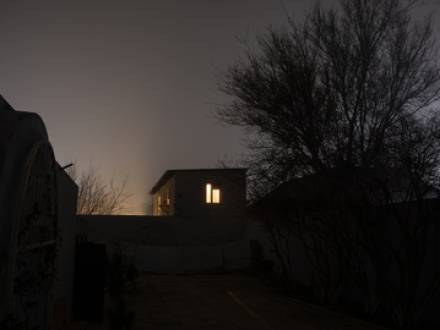1512 Artaius Parkway, Suite 300,
Libertyville, IL 60048
Call for a FREE Phone Consultation
847-549-0000
Video Consultations Also Available
 Spanish
Spanish Cantonese
CantoneseServing Clients Across 7 Illinois Locations
Illinois Real Estate: Stigmatized Property Law
 Suppose someone died in the house you are about to buy, or that it was once the hideout for a notorious criminal. Or, what if the house is allegedly haunted, or there was a violent crime that occurred in the house? Would you want to know these things? Would you feel as though you were entitled to know? Under the Illinois Residential Real Property Disclosure Act (765 ILCS 77), only physical defects and material conditions must be disclosed to buyers.
Suppose someone died in the house you are about to buy, or that it was once the hideout for a notorious criminal. Or, what if the house is allegedly haunted, or there was a violent crime that occurred in the house? Would you want to know these things? Would you feel as though you were entitled to know? Under the Illinois Residential Real Property Disclosure Act (765 ILCS 77), only physical defects and material conditions must be disclosed to buyers.
Under the Illinois Real Estate License Act (225 ILCS 454/), brokers are required to be honest, but must only disclose facts that have a direct and detrimental physical effect on the property, which excludes nonphysical "stigma." If you are unsure what constitutes a "stigmatized property," it is important that you speak to an experienced Gurnee, IL real estate attorney. Having a knowledgeable real estate lawyer who can help ensure you do not make any missteps that could be hard to recover from gives you a definite advantage when purchasing property in Illinois.
What Does Stigmatized Property Mean in Illinois?
A stigmatized property in Illinois is one that has been psychologically impacted by a past event. In spite of the psychological impact, the property has no physical defect. Under Illinois law, real estate agents are not legally required to disclose these nonphysical stigmas to potential buyers unless the buyer specifically asks whether such an event occurred on the property. Stigmas are considered to be:
- Deaths, including murder or suicide
- Paranormal incidents or alleged hauntings
- Any type of psychologically disturbing facts attached to the property
- A high-profile person who lived in the house and perhaps used it to house a criminal organization
- Any notorious events associated with the property
What is the Buyer’s Responsibility Regarding Stigmatized Property?
Since there is no legal duty for sellers to disclose stigmatized property in the state, the buyer must directly inquire. The buyer can ask the seller or the real estate agent directly whether any of these events occurred on the property. The buyer can also conduct his or her own research by investigating the history of the property, talking to neighbors, or looking up past sales information to reveal any relevant details.
If a buyer asks directly and the seller or real estate agent has knowledge of the stigmatizing event, they are required to disclose those facts. If the buyer asks a specific question and the seller or agent actively conceals the facts, then liability may arise. Further, if the stigma is closely tied to a physical defect (a crime committed in the house caused structural damage, blood cleanup, or a biohazard), then disclosure is likely required.
This means that if the house was being used to manufacture methamphetamine, and there was a fire in the kitchen caused by that activity as the police raided the house, that would likely need to be disclosed. A psychological stigma itself rarely prohibits obtaining title insurance, but if there are hidden physical defects tied to the stigma, then it could. Even though Illinois law favors nondisclosure, municipal or county ordinances might impose other duties.
Contact a Lake Forest, IL Residential Real Estate Lawyer
For some people, living in a house where violence occurred would not matter one way or the other. For others, it would be a significant consideration in the decision to purchase a home. If you are in the latter category, it is wise to have a highly experienced Gurnee, IL real estate attorney from Newland & Newland, LLP as your advocate during the process.
Our attorneys are local to Illinois. We always put our clients and communities first and have decades of experience among our attorneys. Our main attorney has served on the Real Estate Committee of the Lake County Bar Association and the Board of Directors of the Illinois Real Estate Lawyers Organization. To schedule a free consultation, call 847-549-0000.
 Stop Foreclosure
Stop Foreclosure




















